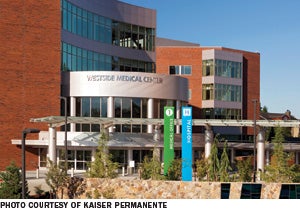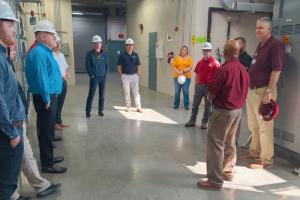Kaiser Permanente aims to construct only high-performing facilities
 For Kaiser Permanente, Oakland, Calif., the commitment to build all of the estimated $30 billion worth of new health care facilities to a minimum Leadership in Energy and Environmental Design (LEED) gold certification standard makes perfect sense.
For Kaiser Permanente, Oakland, Calif., the commitment to build all of the estimated $30 billion worth of new health care facilities to a minimum Leadership in Energy and Environmental Design (LEED) gold certification standard makes perfect sense.
Their mission to improve health and exceed the sustainability bar is all about "walking the talk."
Don Orndoff, senior vice president of national facilities services, convinced C-suite executives that seeking the U.S. Green Building Council's LEED for Healthcare for new hospitals and LEED for New Construction Building for new medical offices should become routine for several reasons.
It's financially smart from a life cycle standpoint, enhances the healing environment for patients and staff, improves the health of the communities served, demonstrates good environmental stewardship and provides structure for including sustainability in the design and construction process, Orndoff says.
An ambitious undertaking, the LEED certification initiative involves an estimated 100 new hospitals and medical offices Kaiser Permanente plans to build, expand and renovate over the next 10 years. The new facilities represent an estimated 11 million square feet of real estate.
"I recommended [that] senior leadership make the commitment to LEED because the certification process is a good, independent, third-party validation that we're 'walking the talk,' " Orndoff says.
Kaiser Permanente aims for its new facilities to achieve energy performance at least 25 percent better than ASHRAE 90.1-2007 and to use at least 30 percent less water than the baseline established by the U.S. Energy Policy Act of 1992.
Orndoff says Kaiser Permanente makes an ongoing effort to improve the performance level of its existing facilities as well. Actions commonly taken are upgrading control systems, replacing older chillers and boilers with high-efficiency units and conducting energy audits, he says.
John Kouletsis, vice president of facilities planning and design, Kaiser Permanente, says all of its newer hospitals and medical offices routinely recycle regular and construction waste; eliminate polyvinyl chloride and plasticizers in flooring, walls and equipment; eliminate mercury from medical equipment; and install LED lights and low-flow water faucets.




